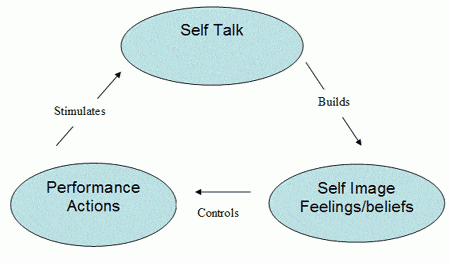“Muddy water is best cleared by leaving it alone”. – Alan Watts
Lately, I have been thinking about The Law of Reversed Effort.
Simply put, the harder we work at something the less effective we are.
A great example of this is the insomniac. Sleep is an entirely subconscious process, and ‘willing’ yourself to or ‘trying’ to sleep has exactly the opposite effect. The more you think about sleeping and tell yourself to ‘get’ to sleep, the more awake you become.
Or think about it this way, when you are swimming, if you want to float what happens? You start to drift and sink. If you want to sink and push down, your body fights against you to push you back toward the surface. If you want to sink, you float.
This law exists because our conscious mind and our unconscious mind are often in conflict, and the unconscious mind wins. Why? Because it is our protector and it is rarely rational. The french psychologist, Émile Coué, defined the law of reversed effort and said:
“When the imagination and will power are in conflict, are antagonistic, it is always the imagination which wins, without any exception”.
Imagine if I laid a board on the ground and asked you to walk on it. You would do it without reservation, right? After all, it is just a board and to walk on it from one end to another is no problem at all. You can consciously tell your body to do it and it will.
But what if we took that same board to the top of the highest two buildings in your city? I placed one end of the board on the tip of building one, and the other end on the tip of building two. Now I ask the same of you: will you walk over the board? It is the exact same physical action as before. One foot in front of the other, just walk down the board. But your unconscious mind will fight you with everything it has. You will be scared, anxious, afraid to fall, and the more you try to “will” yourself to not feel this way the worse it will get.
See, you have no more a chance of stepping off the board in the air as you did on the ground, but your mind imagines all sorts of scary scenarios and stops you from being able to complete the task.
“The harder we try with the conscious will to do something, the less we shall succeed. We cannot make ourselves understand; the most we can do is to foster a state of mind, in which understanding may come to us”. – Aldous Huxley (The Law of Reversed Effort)
So how does this affect our everyday lives?
I can tell you from personal experience that I fall prey to this on a daily basis. I am a real estate teacher and coach by day (which I love and have a passion for) and a writer/speaker/community organizer by dream. But why by dream? I have always wanted to write, have always felt like I had something to say. My conscious mind says “I can do that. I can share, speak and write” but then what happens? My unconscious mind for years has sabotaged it with doubt, and insecurity, and fear. My imagination of what may go wrong was stronger than my will to make it happen.
It was not until I completely let go as a person and started to blend relaxation with activity that I was able to write and speak and share. I have a very long way to go. Enlightenment is not a destination but a journey. At best, I am hoping to just stop fighting myself.
Is some form of this happening in your life right now? The agents that I coach have amazing talent. They are wonderful people whose stories are compelling, genuine, and true. Yet, many are hindered by self-doubt. Their conscious mind has set a goal and their unconscious mind sets out to sabotage that goal.
Take a moment and take stock of yourself. Are you continuing to fight this fight?
Émile Coué says:
“The solution for this fear, is to relax, to let go and to think about relaxing things that can provide us with the confident feeling. From this confident feeling, when we feel fresh and secure, we can, easily deal with anything that will appear less threatening.”
Relax and let go. Stop fighting yourself. Smile. Remember the last time you took a test? You study and study, your stress and anxiety building until the moment you sit down and then….poof. You go blank. The harder you search your brain for the answers, the less you can remember. What happens when you walk out of the room? An hour later, when the pressure is off and you are relaxed, you remember everything.
The negative thoughts are apt to be more effective than the positive because the negative usually has more feeling with it.
Take your goal into contemplation and focus on relaxing, letting go of the negative feelings associated with not achieving this goal. Set up a positive image about the goal, then put feeling with it. Nothing is simple, but everything is worth trying.














































